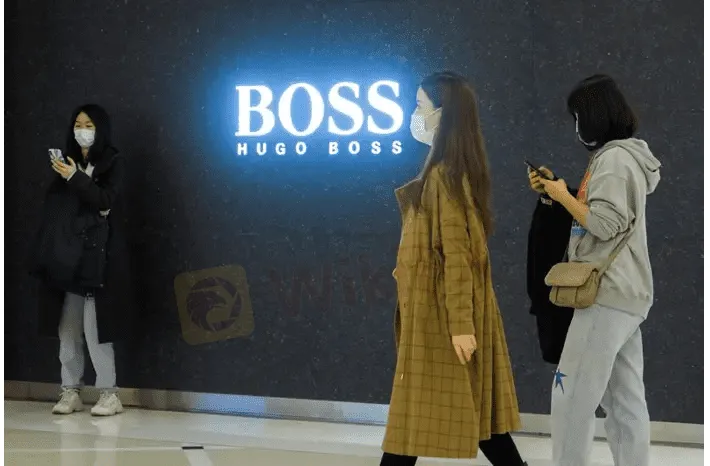简体中文
繁體中文
English
Pусский
日本語
ภาษาไทย
Tiếng Việt
Bahasa Indonesia
Español
हिन्दी
Filippiiniläinen
Français
Deutsch
Português
Türkçe
한국어
العربية
Motor racing-Fashion Brand Hugo Boss returns to F1 with Aston Martin
Abstract:German fashion brand Hugo Boss announced on Thursday it was returning to Formula One with the Aston Martin team, five years after leaving for the electric Formula E series.

The deal, announced at the British Grand Prix on Thursday and initially running until 2025, will see Boss branding on the F1 cars with immediate effect and the company providing team apparel from 2023.
Hugo Boss Chief executive Daniel Grieder told Reuters the pull of Netflixs “Drive to Survive” docu-series, new rules to make racing more competitive and a push for sustainability were compelling factors.
A 30-year friendship with Aston Martins Canadian billionaire owner Lawrence Stroll, who made his money in the fashion industry before acquiring the sportscar marque made famous by fictional British spy James Bond, also played a part.
“We want to become a 24/7 lifestyle brand,” said Grieder.
“When you see what Lawrence does with Aston Martin, its a similar story.”
Hugo Boss were with former champions McLaren for decades before moving to Mercedes, the dominant team of the last eight years, in 2015.
In 2017 previous CEO Mark Langer told German weekly magazine Focus that the deal was ending because “Formula E is more innovative and sustainable” and electric racing was more attractive to a younger audience.
Grieder said that had not proved to be the case.
“It didn‘t make it. Formula E was never the same as Formula One. It didn’t become as relevant as it should have become,” he said.
“Formula One is also back, better than ever. Its a global sport … and they also have commitments to a more sustainable world and races.”
“I think the sport is even more relevant than ever and the whole world is watching and so many fans are into it and its so exciting at the moment.”
Having three races in the United States next year was also attractive: “I think the balance they found now is perfect,” said Griedel.
He said Hugo Boss was now a platform with two brands appealing to different demographics – Boss for millennials between 25 and 40 and Hugo for the more music and art-centred “Gen Z” under-25s.

Disclaimer:
The views in this article only represent the author's personal views, and do not constitute investment advice on this platform. This platform does not guarantee the accuracy, completeness and timeliness of the information in the article, and will not be liable for any loss caused by the use of or reliance on the information in the article.
Read more

The Daily Habits of a Profitable Trader
Every professional trader follows a structured approach to ensure they are well-prepared, disciplined, and able to seize opportunities with confidence. Whether you are a seasoned investor or an aspiring trader, adhering to a robust daily checklist can significantly enhance your performance. Use this checklist to check if you are a qualified trader

The Impact of Interest Rate Decisions on the Forex Market
Interest rate changes determine currency attractiveness, influencing capital flows and exchange rate trends. Understanding this mechanism helps investors navigate the forex market effectively.

How a Housewife Lost RM288,235 in a Facebook Investment Scam
A 47-year-old housewife in Malaysia recently fell victim to an online investment scam, losing a substantial sum of RM288,235 after engaging with a fraudulent scheme advertised on Facebook.

A Trader’s Worst Mistake: Overlooking Broker Reviews Could Cost You Everything
In today’s digital age, reviews influence nearly every decision we make. When purchasing a smartphone, television, or home appliance, we pore over customer feedback and expert opinions to ensure we’re making the right choice. So why is it that, when it comes to choosing an online broker where real money and financial security are at stake many traders neglect the crucial step of reading reviews?
WikiFX Broker
Latest News
The Withdrawal Trap: How Scam Brokers Lure Victims into Paying More
FCA to Investors: Think Twice Before Trusting These Brokers
Trump\s tariffs: How could they affect the UK and your money
Trump gambles it all on global tariffs he\s wanted for decades
TradingView Brings Live Market Charts to Telegram Users with New Mini App
Trump tariffs: How will India navigate a world on the brink of a trade war?
Interactive Brokers Launches Forecast Contracts in Canada for Market Predictions
Authorities Alert: MAS Impersonation Scam Hits Singapore
Stocks fall again as Trump tariff jitters continue
IG Group Acquires Freetrade for £160M to Expand UK Investment Market
Currency Calculator







